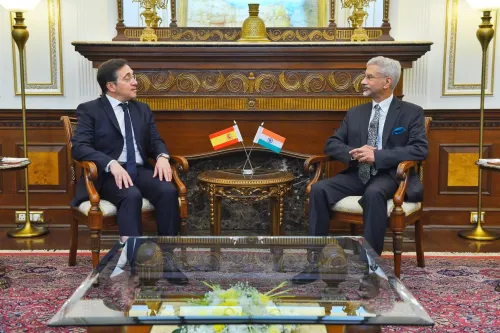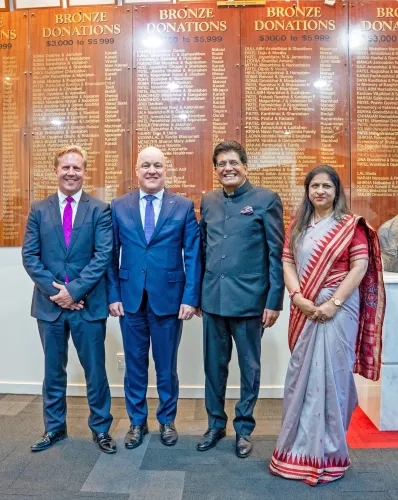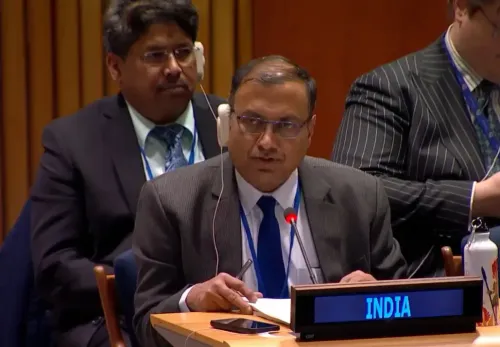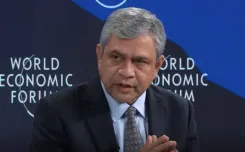How Can India and Japan Leverage Their Strengths?
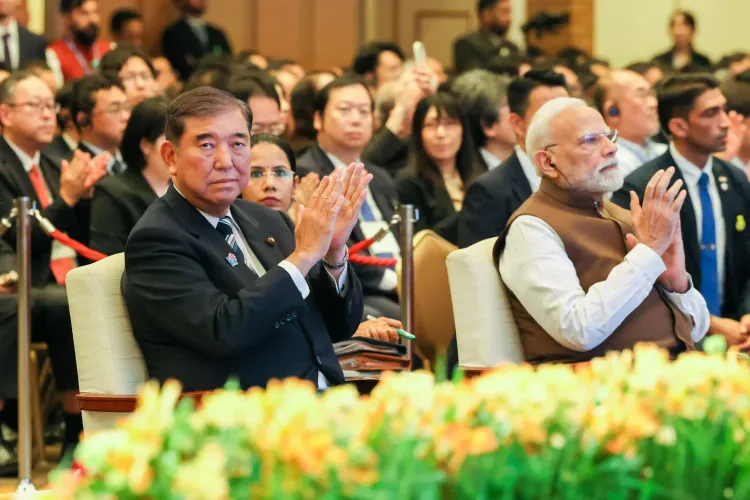
Synopsis
Key Takeaways
- Japan and India are committed to enhancing their bilateral relationship.
- Focus on leveraging strengths in technology and human resources.
- Importance of maintaining a free and open Indo-Pacific.
- Advancement of strategic partnerships over the next decade.
- Collaboration in defense and security is essential.
Tokyo, Aug 29 (NationPress) Emphasizing the synergy between Japan's advanced technology and India's skilled workforce along with its vast market, Japanese Prime Minister Shigeru Ishiba reiterated on Friday that Tokyo is committed to enhancing investments in India and fostering deeper collaboration.
During a joint press conference with PM Narendra Modi after their annual summit in Tokyo, Ishiba reflected on his visit to India in 2019. He highlighted the necessity for India and Japan to uphold a free and open international order in the Indo-Pacific, guided by the rule of law.
"India currently boasts the world's largest population and is experiencing remarkable economic growth. The nation is transforming the global landscape through innovative initiatives. Japan, on the other hand, is renowned for its cutting-edge technology, driving global advancements. As we envision the future of India-Japan relations, leveraging each other's strengths is crucial to address our challenges and support one another. Both nations share foundational values, and in the Indo-Pacific, we must work together to sustain a free and open international order, taking responsibility for its fortification," stated the Japanese PM.
"With the increasing complexity of international conditions, Japan and India must unite their strengths to ensure peace and stability in the region. Prime Minister Modi's inaugural visit to Japan as PM in September 2014 marked the beginning of our strategic partnership. Over the past decade, progress has been evident in these areas," he further added.
Shigeru Ishiba discussed the future trajectory of the bilateral relationship over the next decade during their talks. He noted, "In our meeting, we exchanged views on advancing our relationship in the coming 10 years. Primarily, to secure peace and stability in the Indo-Pacific, enhancing cooperation between our defense authorities is essential."
These remarks followed the 15th India-Japan Annual Summit held at Kantei, the official residence of the Japanese Prime Minister. The meeting was attended by Foreign Secretary Vikram Misri, National Security Advisor (NSA) Ajit Doval, India's Ambassador to Japan Sibi George, and other officials.
Upon his arrival for the summit, PM Modi received a ceremonial welcome and a Guard of Honour at Kantei. Earlier in the day, both leaders addressed the India-Japan Economic Forum, where business leaders from various sectors were in attendance. In his remarks, PM Modi highlighted India's profound economic relationship with Japan and discussed potential areas for future collaboration.
PM Modi landed in Tokyo early Friday morning for a two-day visit, welcomed by Japan’s Ambassador to India ONO Keiichi, India’s Ambassador to Japan Sibi George, and other senior officials.


